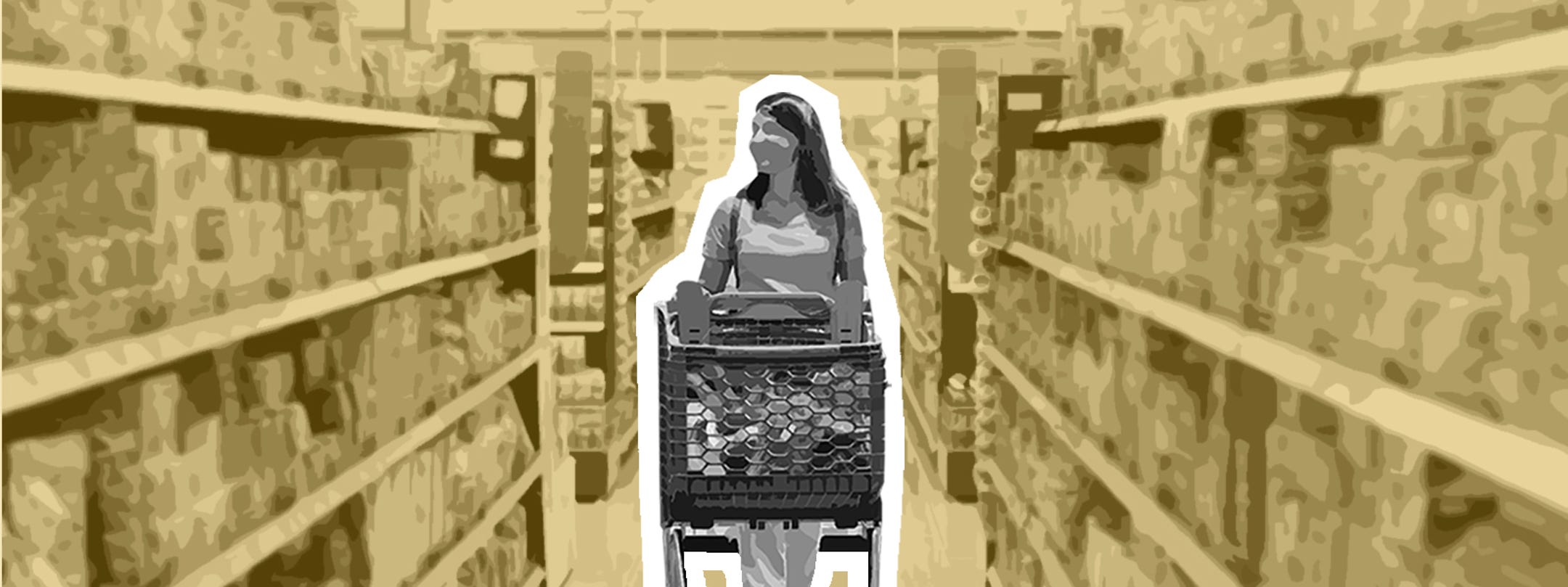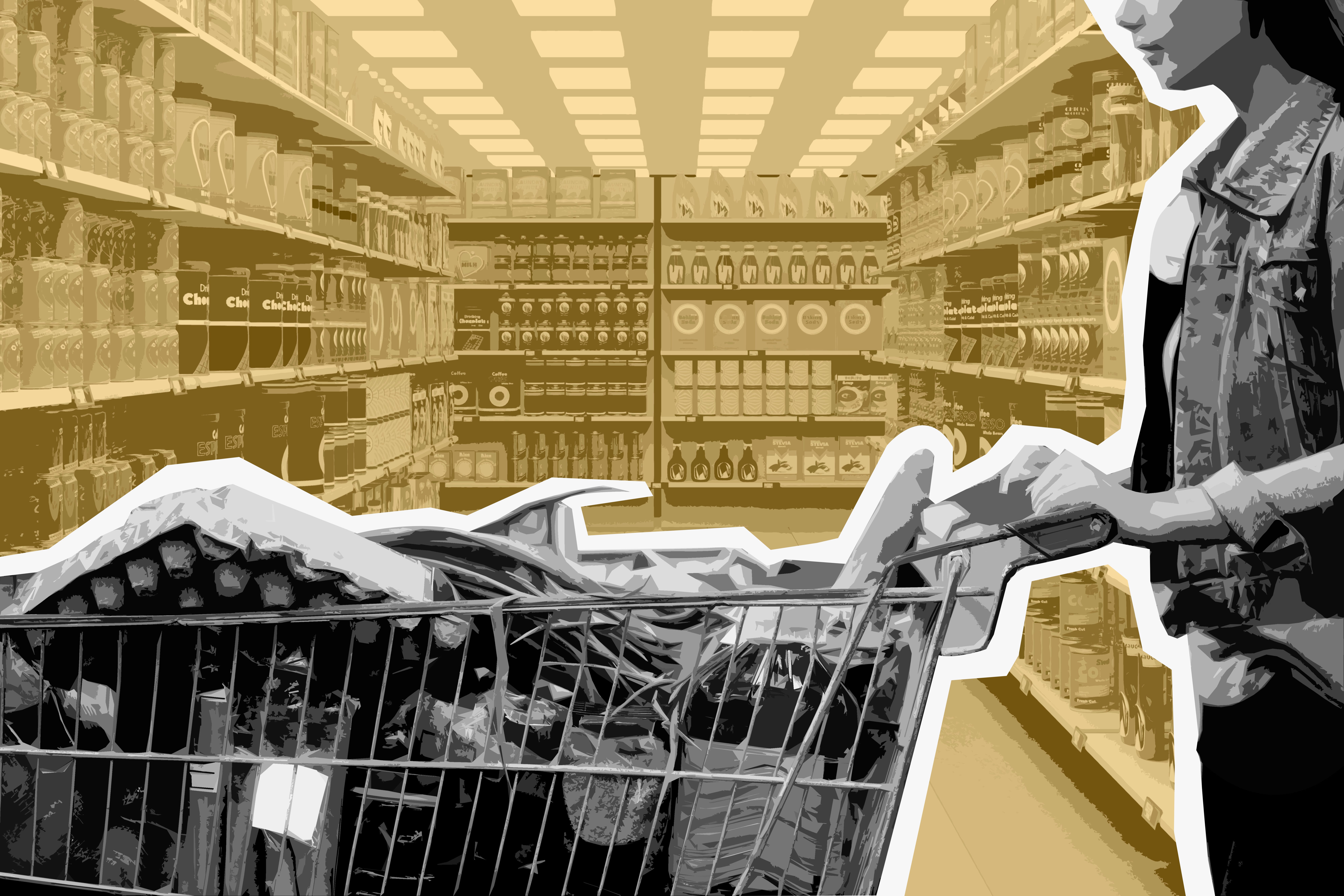
Businesses remain closed as the coronavirus spreads and more states issue stay-at-home orders in which residents are ordered to shelter in place except in limited circumstances.
One of those exceptions is going to the grocery store. Many supermarkets have implemented new store hours to cater to the most vulnerable and have taken extra precautions to reduce the risk of transmission.
But there's still a chance of getting infected. The director of the U.S. Centers for Disease Control and Prevention, Dr. Robert Redfield, warned Tuesday that about approximately a quarter of people infected with the coronavirus may not show any symptoms.
Need Money help? We got you: Money tips and advice delivered right to your inbox. Sign up here
Experts recommend shoppers take the following precautions to stay safe while grocery shopping:
Best time to go to the grocery store
Many grocery store chains have special hours for the elderly and those who are immunocompromised or have more than one disease.
Lauren Sauer, director of operations for Johns Hopkins Office of Critical Event Preparedness and Response, said that if you don’t fall into one of these groups, then it’s important to stay away from the store during those hours to avoid putting the vulnerable at risk.
She also said to seek out grocery stores that are implementing cleaning procedures and enforcing social distancing practices. If you see a grocery store that's particularly packed, it's a good idea to find another one or come back another day.
Ann Marie Pettis, president-elect of the Association for Professionals in Infection Control and Epidemiology, said it's safer to go to the grocery store in the early morning or mid-day when it isn’t usually busy.
But those times may have changed during the current crisis.
“It’s hard to know when the quieter times may be because there are so many people not working,” she said. “I do think it’s a little riskier now.”
Should I wear a mask to the grocery store?
President Donald Trump said at a White House news conference Friday the Centers for Disease Control and Prevention would revise recommendations to advise people to start wearing cloth masks in public to stop the spread of the coronavirus.
Pettis said shoppers should still stringently follow social distancing guidelines inside the store and wash the mask at home. She also advises bringing an alcohol-based sanitizer to the store along with some disinfectant wipes, if available.
Other than that, Sauer says, bring as little as possible.
“You don’t want to bring that much stuff that you’re going to be taking back to your house,” she said.
Sauer and Pettis also advise, if possible, leaving children at home. Not much is known about how the virus develops in children, but experts say leaving kids at home reduces the number of people in a store at one time.
It’s also harder to keep children away from other people, and they don’t always have the best hygiene, Pettis said. However, not everyone has access to child care and can keep the little ones at home.
“If you don’t have the ability to do it, try to explain to kids why they can’t be near other people and why they have to stay close to you,” Sauer said.
Many grocery stores are wiping down high-touched surfaces or giving out disinfectant wipes. Still, experts recommend bringing your own to wipe down grocery cart handles, baskets and touch pads at self-checkout kiosks.
Continue to practice social distancing in any enclosed space, including the grocery store.
Some supermarkets have set up lines on the floor so shoppers can have a visual representation of what 6 feet of social distancing looks like. Other stores have designated aisles that flow traffic in a single direction to keep shoppers from passing each other.
“When you’re walking through the store, the hardest part is passing people in the aisle,” Sauer said. “Really avoid passing closely by people when you can.”
She also recommends avoiding busy aisles and standing 6 feet away from the person in front of you at the checkout line.
Mobile pay, credit/debit cards or cash?
The safest way to pay for your grocery items is through mobile pay apps on your phone, such as Apple or Google Pay.
But if the pin pads at your local grocery store don’t have a mobile pay option, then using a credit or debit card is safer than cash. Even before the virus outbreak, studies showed paper money can harbor thousands of microbes from various environments.
As part of a 2017 study published in the peer-reviewed journal PLOS ONE, researchers swabbed $1 bills from a bank in New York City and found hundreds of species of microorganisms, including bacteria, microbes from mouths, and DNA from pets and viruses.
“Theoretically it makes sense that the less handling of stuff, the better,” Pettis said.
Most cashiers at grocery stores and fast-food restaurants have been instructed not to handle credit or debit cards, so shoppers are required to use the pin pad. Experts recommend using hand sanitizer or washing your hands right after checkout and avoiding touching the “T-zone” – eyes, nose and mouth.
How much should I buy and how often should I go?
Experts say shoppers shouldn’t frequent the grocery store every day and should limit the time they spend there.
However, Sauer warns against emptying shelves and avoiding hoarding behaviors because there are families who don’t have the financial flexibility of stocking up for two weeks.
Pettis recommends having a grocery list to know exactly what you need and how much of it to reduce time browsing.
"When you're in the grocery store, you should only touch items you plan to buy," Sauer said. "Don’t pick them up and read them and then put them back."

It’s better to have a paper grocery list to dispose after leaving rather than taking out your phone and risking contamination.
She also advises running other errands during the same trip, like going to the pharmacy, so you’re not leaving the house multiple days in the week.
Depending on financial flexibility, both experts recommend buying groceries for no more than two weeks and visiting the store a maximum of one or two days a week.
Should I wipe down or disinfect groceries?
A study published in the New England Journal of Medicine found viable virus could be detected up to 24 hours on cardboard and up to two to three days on plastic.
However, many experts say it's not necessary to wipe down every single item in your grocery bag. Although the virus can live on surfaces for hours and even days, the chances of it remaining viable on your trip home is extremely unlikely.
The U.S. Food and Drug Administration also has said it hasn't received any reports suggesting COVID-19 can be transmitted by food or food packaging.
"You’re more likely to get infected by the people in the store, not the surfaces," Sauer said. "Your mind should be reducing interaction with people at the store."
Pettis says any time you're coming into the house from the outside, it's important to go straight to the sink to wash your hands – even if you use hand sanitizer in the car after leaving the store.
"I don't think you can overdo it," she said.
After washing your hands, it's time to unpack the groceries. It's important to dispose of the plastic or paper bags and wipe down the countertop or table where the groceries sat.
Some states ban plastic bags in grocery stores, in which case Pettis says it's important to launder any reusable or cloth bags that were brought to the store after each use.
As one would do before the coronavirus outbreak, fruits and vegetables should always be washed with water before eating them. Experts suggest against using soaps on produce as they're not meant to be ingested and can cause a stomach distress.
You should be washing your hands throughout each step. Wash your hands before and after putting away the groceries, before washing fruit, after wiping down high-touch surface areas and, of course, before preparing a meal.
Food delivery services
Grocery delivery services or curbside pickup are good ways to avoid the store, especially for shoppers who are more vulnerable to illness from the virus.
Not only does it limit your exposure to the virus, but Sauer said it's also a good option for those who are sick and want to limit their exposure to other people.
"You absolutely don't want to go to the grocery store if you're sick," she said.
Pettis stresses avoiding the store and staying home, even if you only have mild symptoms like a slight cough or sore throat.
"If you start to feel a little bit off, that’s the time you really need to think 'should I go out at all right now?'" she said.
If delivery or curbside services aren't possible, Sauer encourages people to be mindful of vulnerable communities and to shop for friends and family members who are elderly or ill.
SOURCE USA TODAY research; Getty Images photos
Follow Adrianna Rodriguez on Twitter: @AdriannaUSAT.
Social distancing guidelines